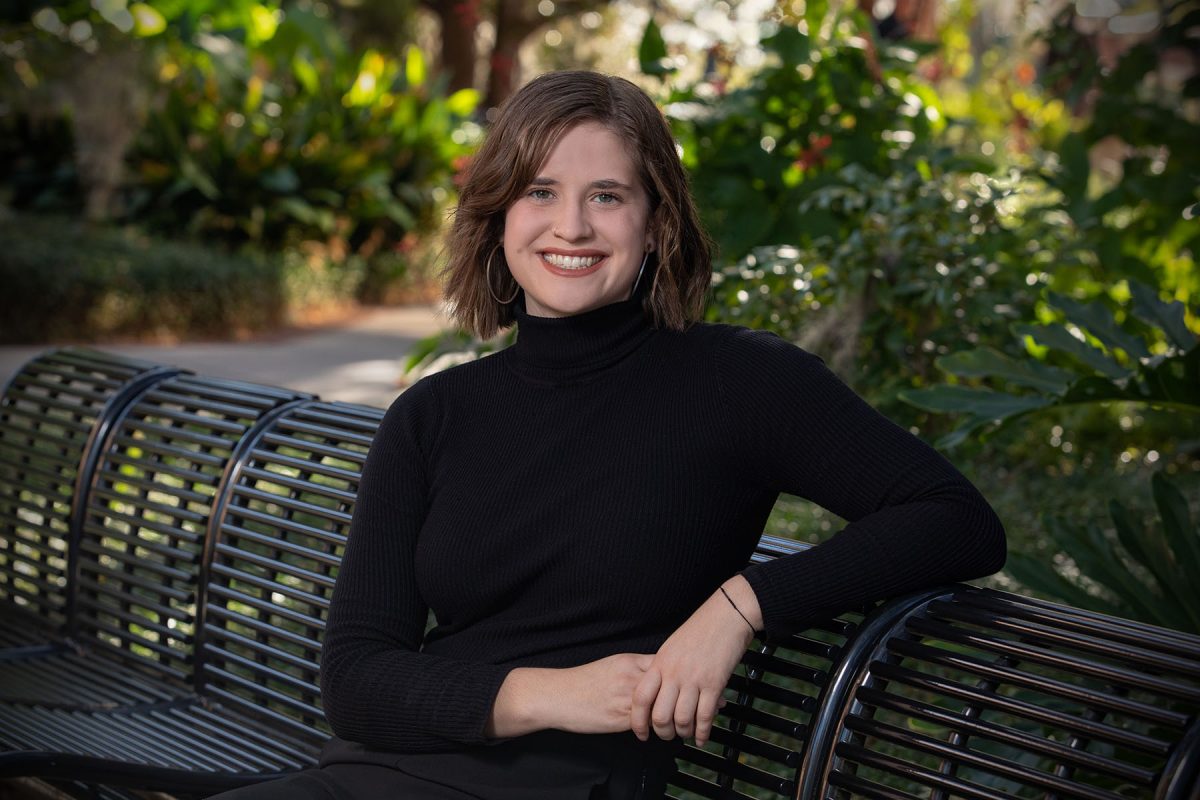
“The academic community at Florida State University not only gave me a strong academic foundation designed to prepare me for graduate education, but also the encouragement to reach my full potential.”
Fast Facts
- Active Student: Lifts weights at the FSU Leach Center
- Well-traveled: Excavated a Roman Bathhouse in 2022
- Research: Awarded the Tyler Center for Global Studies Research Award
- Diverse Skillset: Works as a data analyst in Strozier Library’s Assessments Department
Florida State University senior Rosalyn Wadsworth grew up thinking archaeology was not a realistic career choice. However, through opportunities at FSU, she realized archaeology was something she could pursue successfully.
“When I toured Florida State University, I was impressed by the programs meant to encourage undergraduate participation in research,” Wadsworth said. “The academic community at FSU not only gave me a strong academic foundation designed to prepare me for graduate education, but also the encouragement to reach my full potential.”
Wadsworth’s minor in Japanese Language and Culture provides a nuanced perspective to her research endeavors. Her IDEA Grant project and Honors in the Major thesis analyze biological variation among Japanese hunter-gatherer populations between 5000 B.P and 2300 B.P, for which she received the Tyler Center for Global Studies Research Award.
“When I was initially awarded the Tyler Center for Global Studies Research Award, I was absolutely ecstatic,” Wadsworth said. I find Japanese culture, history and traditions very interesting, so I was excited to be present at the sites I was researching in my thesis, talk to researchers who specialized in Japanese archaeology and practice speaking with locals.”
Her research involves examining skeletal data to determine if general health factors and specific characteristics, such as stature, vary between coastal and inland sites. These methods include non-metric observations such as caries and pathologies on the skeleton.
To further her skills, Wadsworth completed Assistant Professor of Anthropology Jessi Halligan’s Underwater Field School during the summer of 2023. There, she learned how to excavate units in dark and muddy water. She hopes to take this knowledge overseas to evaluate submerged landscapes in Asia during graduate school.
Wadsworth will attend the University of Hawai’i at Mãnoa’s Anthropology MA program in Fall 2024 and plans to pursue a doctoral degree in anthropology.
Why did you choose a major in anthropology with a minor in Japanese language and culture?
Archaeology is the study of people’s ancestry, and as an archaeologist, I need to show proper respect by learning about the descendants of the people I am studying. I think it’s important to understand how cultural and political contexts frame research topics and how to present them in a respectful manner.
Could you elaborate on how specific Japanese culture(s) relate to your Honors in the Major research?
My Honors in the Major Thesis focuses on the Jomon, a native Japanese hunter-gatherer population that occupied the archipelago from about 40,000-3,000 BCE. The Jomon’s modern descendants are the Ainu people, who reside in Hokkaido. The Ainu are not what normally comes to mind when people think about Japanese culture. My research is important because it helps contextualize this cultural variation within Japanese history and among modern populations.
What was it like to excavate a Roman Bathhouse?
That was a great summer! It was a lot of fun working in the field. I learned how to excavate archaeological materials, which I had only learned about in the classroom. It felt like I was finally doing archaeology and not just learning about it. I traveled around Italy with students from all over the United States and some from England. It was an amazing experience.
Is there anyone at FSU that has made a significant impact on you?
When my previous thesis supervisor left FSU, the timeline for my Honors in the Major thesis was disrupted and I felt very lost. Professor Jessi Halligan immediately agreed to be my new project supervisor and helped me get back on track. She is never too busy for her students and truly cares about them. She is an amazing and knowledgeable archaeologist, and I have learned a lot from her. Her support has been instrumental to my undergraduate success, and I’m very grateful for all she does for me.




